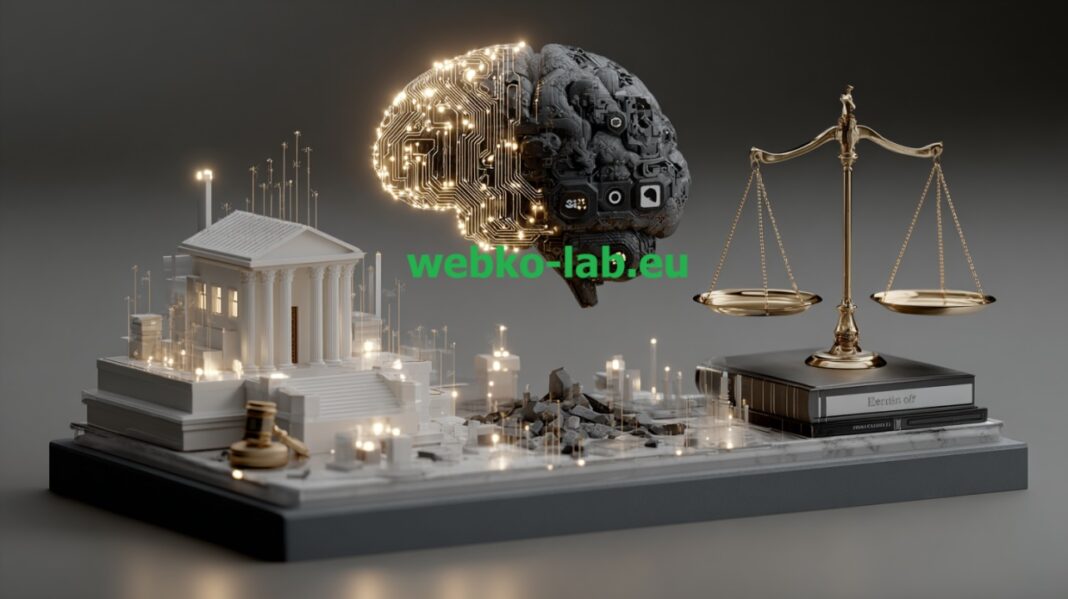Artificial intelligence is advancing faster than ever before. It writes our emails suggests what to watch next creates art composes music and even makes decisions about who gets hired or approved for a loan. But as AI grows more powerful the ethical questions grow louder. Just because we can do something with AI doesn’t always mean we should
The current debate around AI and ethics is happening everywhere—from classrooms to boardrooms to government halls. And for good reason. We’re no longer talking about a distant sci-fi future. AI is shaping real-world experiences in real time. The choices we make today will define how fair transparent and safe these systems are in the future
Let’s look at what this debate is really about what’s at stake and how everyday users can stay informed and responsible
Why AI Ethics Matters
At its core ethics is about doing the right thing. When we apply that to AI we’re asking questions like
Is this system fair
Can it be trusted
Does it harm anyone
Who gets to decide how it works
The answers aren’t always simple. But ignoring the questions means letting algorithms make decisions with real consequences—without accountability
1. Bias and Fairness
One of the most urgent concerns is bias. AI systems learn from data and that data often reflects real-world inequalities. If a hiring algorithm is trained on biased resumes it may continue to prefer certain groups over others
Examples of bias in AI
Facial recognition systems performing worse on people with darker skin tones
AI tools scoring job candidates lower based on gender-coded language
Prediction algorithms in policing targeting certain neighborhoods unfairly
Tip
Before using an AI tool ask how it was trained and tested. Ethical companies should be transparent about their data sources and limitations
2. Transparency and Explainability
Many AI tools are like black boxes. You feed them data and get a result—but have no idea how they arrived at that decision. This makes it hard to question or correct mistakes
Why it matters
If an AI tool denies someone a loan a job or medical treatment we should be able to understand why
Users and regulators need visibility into how decisions are made
Tip
Support tools and companies that invest in explainable AI. Look for terms like “transparent AI” or “interpretable models” in their documentation
3. Privacy and Data Use
AI relies on massive amounts of data. Sometimes that data includes your personal browsing habits voice recordings facial scans or even private messages. Without strong protections this can get invasive fast
Why it matters
Companies can misuse or sell data without consent
Hackers can exploit poorly secured AI systems
Surveillance tools powered by AI raise serious privacy questions
Tip
Read the privacy policies of AI tools you use. Avoid uploading sensitive info to public AI platforms. Use end-to-end encrypted tools when handling personal data
4. Deepfakes and Misinformation
AI can now generate realistic fake images audio and video. While that’s impressive it’s also dangerous. Deepfakes can be used to spread false information impersonate people or create damaging fake content
Why it matters
It’s harder than ever to know what’s real online
Fake content can hurt reputations or manipulate public opinion
Tip
Use tools like Microsoft’s Content Credentials or Reality Defender to detect AI-generated content. Always verify shocking news before sharing it
5. Accountability and Regulation
When AI goes wrong who is responsible The developer The user The company that sold the software Without clear laws and ethics frameworks the answers are murky
Current efforts
The EU AI Act is one of the first serious attempts to regulate AI use
In the US the White House has released a Blueprint for an AI Bill of Rights
Many tech companies are forming internal ethics teams—but their power varies
Tip
Keep up with AI regulation news so you know your rights. Advocate for clear guidelines in industries that use AI heavily like finance healthcare or education
Free Resources to Learn About AI and Ethics
AI Ethics Podcast – https://www.aiethicspodcast.com
Mozilla’s Responsible AI Resources – https://foundation.mozilla.org
AI Now Institute – https://ainowinstitute.org
Elements of AI – Free online course – https://www.elementsofai.com
AlgorithmWatch – https://algorithmwatch.org
Harvard’s Berkman Klein Center – https://cyber.harvard.edu
Tools Promoting Ethical AI
Pymetrics – Uses neuroscience and AI in hiring with fairness as a core principle
Hugging Face – Open-source AI tools with a commitment to responsible practices
IBM Watson OpenScale – Offers explainable and bias-monitoring tools
Originality.ai – Helps detect AI-written content to maintain transparency
Reality Defender – AI tool to detect deepfakes and synthetic media
How You Can Be an Ethical AI User
Ask questions about how the tools you use work
Push back against systems that feel unfair or discriminatory
Support companies that prioritize transparency and fairness
Educate yourself and others about the risks and responsibilities of AI
Stay critical even when something seems “smart” or “neutral”
Final Thoughts
AI isn’t evil and it’s not perfect. Like any powerful technology it reflects the intentions of the people who build and use it. That means ethics in AI isn’t just about engineers or tech companies—it’s about all of us
Whether you’re a content creator a small business owner a teacher or just a curious user you have a role to play in shaping how AI is used. By asking better questions supporting ethical practices and staying aware of how these tools impact society you help build a future where AI empowers—not harms
The conversation is far from over. But the more voices we have in it the better the outcome will be.

